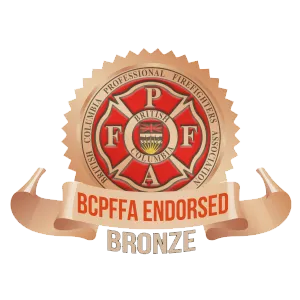For decades, groups of women and men have been innately drawn to professions which help their fellow human beings. Many first responders find themselves in their professions due to an inherent wanting to help others. These individuals have been known to have high levels of empathy, compassion, and sense of caring. These characteristics are crucial when working with people in distress, vulnerable populations and individuals that have experienced pain or trauma. But, what happens to these professionals when the cost of caring becomes too high?
In 1995, Dr. Charles Figley coined the term Compassion Fatigue and since then the concept has been widely explored in many professions. Figley notes that “Compassion Fatigue is a state experienced by those helping people or animals in distress; it is an extreme state of tension and preoccupation with the suffering of those being helped to the degree that it can create a secondary traumatic stress for the helper”. It has been recognized that Compassion Fatigue is an occupational hazard for those who work in careers where caring for others is the primary focus. However, if not addressed, it can have a devastating impact on an individual’s quality of life.
Recognizing the symptoms is the first step towards overcoming Compassion Fatigue. It is important to understand that individuals may experience these signs and symptoms in variation. Individuals who experience Compassion Fatigue may find themselves:
- Exhausted and withdrawn with the need to self isolate; feeling as though they have nothing left to give
- Experiencing emotional outburst such as anger or sadness with the inability to find joy
- Unable to fall asleep, with possible flashbacks or nightmares
- Feeling anxious or depressed with a loss of hope
- Experiencing heightened irritability towards others and during daily tasks
- Unable to stop thinking about situations that occurred at work
- Diminished sense of purpose or job satisfaction
- Embarrassed and confused
- Fearful with a decreased sense of safety
- Suffering from ongoing physical ailments such as shoulders tightness, tension in the back, chronic headaches, gastric intestinal problems and overall aches and pains
- Engaging in self destructive behaviors for numbing such as; overeating, gambling, substance abuse or self medicating
Drs. Figley and Stamm have developed a Compassion Fatigue self-test called the ProQuol that can be taken to assess one’s own level of Compassion Fatigue. However, individuals are encouraged to discuss these concerns and symptoms with their health care professionals to ensure their symptoms are correctly diagnosed and addressed.
It is also important to note that workplace circumstance and personal attributes can play a major role in the outcome of Compassion Fatigue. Often it can be difficult for those individuals working in a caring capacity to step out of this role and seek help for themselves for fear of failure or judgment. Therefore, it is critical for senior members and leadership teams to be aware of the signs as well as how to approach the issue in a sensitive and appropriate manner. It is even more imperative that organizations who employ these professionals create an environment where individuals feel safe and supported to take the necessary measures to address their mental health concerns.
As unique as each individual is, so are the factors leading to compassion fatigue. This is also why some individuals may be more impacted or experience more severe degrees of Compassion Fatigue. Characteristics such as overdeveloped sense of responsibility, lack of strong personal boundaries, unresolved past pains or trauma, and personal experiences can leave an individual more vulnerable to the effects of Compassion Fatigue. Other factors that may leave an individual vulnerable can include; low self-compassion, high level of dedication, expectations of positive outcomes, high demand of personal competence, complex work demands, poor social and personal support and an unsupportive work environment. However, it is important to note that although these factors play a role in the development of compassion fatigue the biggest catalyst is working in an emotionally charged work environment with a high demand to care for others. Even the best and most proficient professionals are susceptible to becoming exhausted and overtaxed.
The journey to recovery begins with 3 core components; self-understanding, self-care, and self-compassion. Mindfulness can be a powerful aid in self understanding; being aware of what is being experienced in the body and mind in a given moment can help an individual understand when they are becoming overwhelmed and help them recognize the warning signs. Next is self-care, this does not mean going on a vacation to a tropical destination for two weeks. This will most likely give an individual some much needed rest and relaxation but shortly after returning to their daily routine and work environment they will find themselves experiencing the same overwhelming sensations they were experiencing prior to their vacation. Self-care is not one single act; it is something that needs to become part of one’s daily routine. Most importantly, to successfully practice self-care, an individual must understand that all three components of their being must be cared for, mind, body, and spirit. To be effective in self-care, individuals must carry self-compassion. Self-compassion means understanding that the individual is as deserving of support and care as those they help. It is common for individuals in caring professions to hold themselves to a higher standard with the belief that everyone else is worthy of care but themselves. Often taking the time for self-care can be accompanied by feelings of guilt, selfishness or self centeredness. It is important to understand that regular self-care and self-compassion build resiliency and allow the individual to better serve those around them, and consequently gives permission to others to instil these similar practices.
As self-care is only successful when it is a part of an individual’s daily routine, programs that offer a holistic approach to self-care such as the Anxiety & Depression Recovery Program are a great resource to promote the path to long-term recovery and success. This program focuses on resilience, self-renewal practices and peer support.
If you think this program is right for you or your loved one, contact us today. Recovery isn’t easy, but it’s within reach.
Published on October 5, 2020
Derek Sienko, M.A. in Military Psychology (candidate), BSW., R.R.P., C.V.R.P



